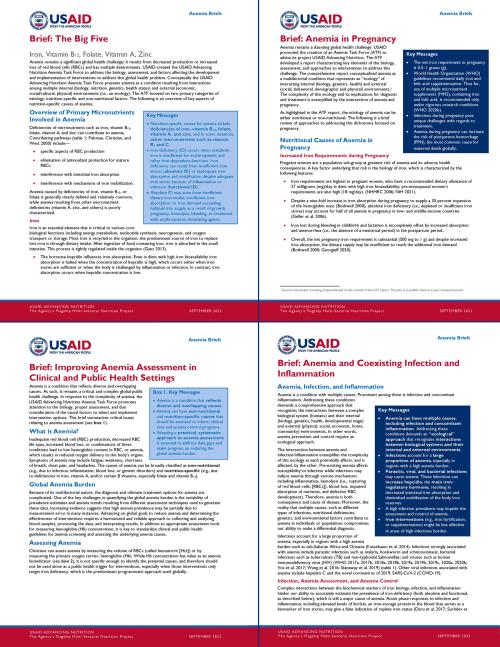Anemia remains a critical and complex global public health challenge with multiple causes—most notably, iron and other nutrient deficiencies, malaria, helminth infestation, non-specific inflammation, and genetic blood disorders. We have traditionally referred to iron deficiency synonymously with anemia. This impairs our ability to address anemia comprehensively because we do not give due importance to its other causes.
The USAID Advancing Nutrition Anemia Task force, a group of leading experts in anemia research and programming, has developed a report that addresses the complex "ecology" of anemia. We recommend an ecological approach to understand anemia, where we can utilize our knowledge of systems biology to suggest sensitive and specific assessment methodologies and interventions to improve clinical and public health outcomes.
Informed by the work of the Anemia Task Force, these five briefs explore current evidence and practice to understand and address the causes and consequences of anemia:
- Anemia Assessment in Clinical and Public Health Settings
- The Big Five: Iron, Vitamin B12, Folate, Vitamin A, Zinc
- Anemia and Coexisting Infection and Inflammation
- Anemia in Pregnancy
- Food-Based Approaches to Address Anemia
The Anemia Task Force also participated in a webinar to discuss this work, hosted by USAID Advancing Nutrition on behalf of the U.S. Government Global Nutrition Coordination Plan’s Ecology of Parent, Infant, and Child Nutrition Subgroup. We invite you to watch the event recording to learn about the key results of our review and the implications of these findings on current and future efforts to address this high priority global health challenge.
